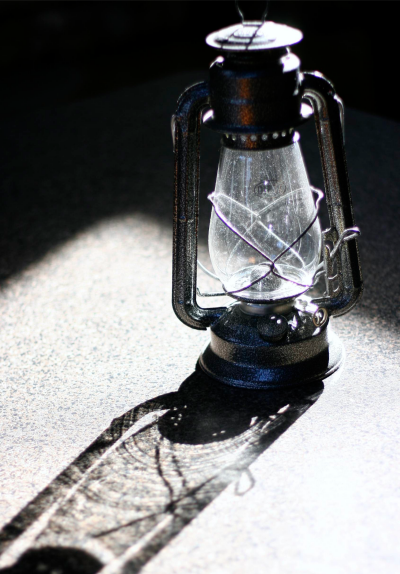"Time for a staycation!" said the bearded shopper behind me.
I turned. "Sorry?"
"We were planning to go off somewhere this weekend, but now we're just going to have a little staycation instead," he said convivially, looking over the beef jerky. "Getting all kinds of goodies for the family." He surveyed his cart. "Actually, there's almost no junk food in here," he added. "They're gonna be disappointed."
After we exchanged a few pleasantries about needing to have flexible plans these days, I wished him a happy staycation and continued looking for salad fixings. (Tonight I'm making ham and beans and a big green salad with goodies in it.) And as I was looking through the canned beans, a sudden memory swept over me.
The word "staycation" has been around longer than I thought -- Merriam-Webster says it was first coined in 1944 -- but it really took hold in American popular culture during the early days of the pandemic. But the concept of staying in while doing something different certainly isn't new. And the memory I had was an amalgam of several different memories, something my mom would do occasionally when I was growing up, especially my years in middle school.
"Tonight, let's see what it was like to live in colonial times," she'd say. And for that evening, we'd turn off all the lights, unplug the appliances and clocks (except the battery-powered ones), and turn off the ringer on the phone. Instead of cooking on the stove, Mom would fire up the kerosene heater in front of the fireplace and cook a bubbling stew on its flat, trapezoidal top. We'd light kerosene lanterns at the kitchen table and put candles above the fireplace, and we'd do our homework by lantern light while Mom, who had been a history teacher before she married and had six children, would tell us about the era before video games and electrical power and refrigerators and lightbulbs: how people in those days lit their homes and kept their food safe to eat, how they'd cook over the kitchen hearth and bake in earthen ovens, how they'd entertain themselves in the long, cold winters. Sometimes during these colonial-times evenings, we'd get our sleeping bags and all sleep together in the front room, cozy and safe in the residual warmth of the kerosene heater.
 |
| "Lantern" by Chuck Grimmett. Public domain image. |
I was smiling a little at the thought of it -- and then, for the first time, it really hit me.
"Oh," I said aloud, right in the canned-food aisle. "She didn't have enough money to pay PG&E."
We lived well below the poverty line even before my dad died, and while I think we kids all knew there wasn't much money, my mother tended to focus on things that were freely available to us -- the library, the public parks, city museums, walks and hikes in local green spaces, imaginative play -- rather than things we couldn't afford. There must have been times when she had very little money to pay the gas and electric bill, but she'd done such a skillful job of making "colonial times" into a purposeful adventure that up to that moment, it had never occurred to me that she was doing it out of financial necessity.
"She made necessity into an adventure." If I had to sum up my mom's parenting style in six words, I think that would be it.

3 comments:
What a wonderful insight. It reminds me of the time we were supposed to go on a picnic and it poured rain. My mom promptly had us set up a picnic in the living room, and we weren't allowed to go back to the kitchen for anything once we sat down to eat. That was a blast.
What an amazing memory! Love how you write :)
Thanks, Cailean. It's funny how sometimes, when just the right event jogs your memory, certain things pop into your head. This particular memory showed up very much that way.
Post a Comment